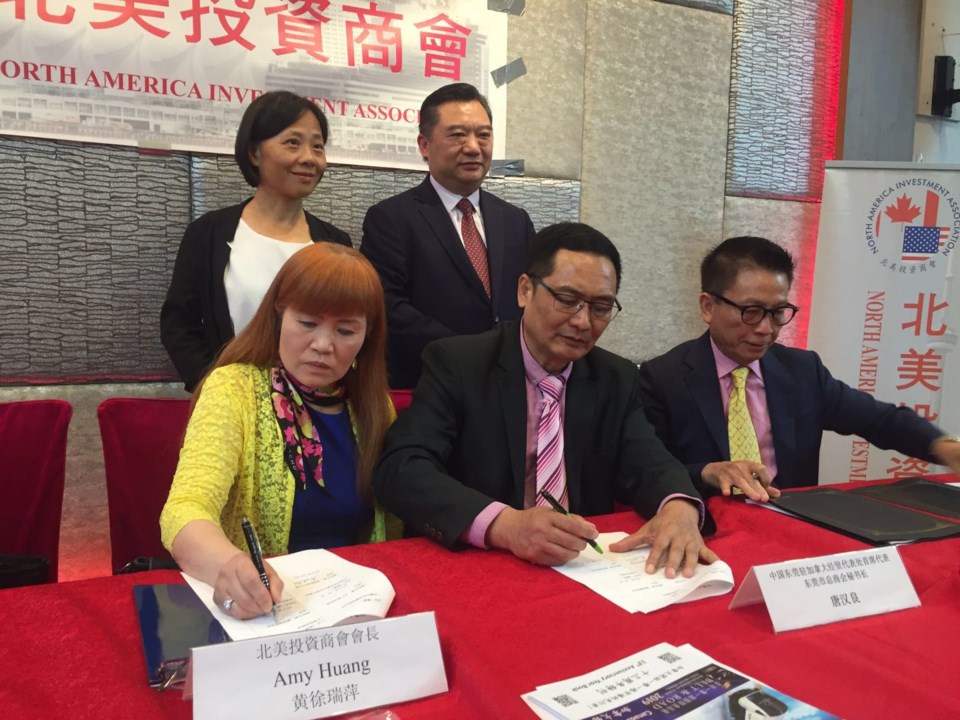Richmond business people in the Chinese-Canadian community have once again expressed safety concerns while going on trips to China.
Relations between Canada and China have been strained since two Canadians were detained in China in December.
And Amy Huang, president of Richmond-based North American Investment Association (NAIA), said as relations between the two countries worsen, some businesses under her association are reluctant to go on business trips to China.
“I tried to call for Richmond-based business leaders to join a trip to Hong Kong to introduce Canadian agricultural products to the Chinese market. But some businessmen expressed their concerns over the trip, and they rejected my invitation,” said Huang.
“I have been leading business trips to Hong Kong for three years, but this year is the most difficult and challenging one.”
Huang led The Canadian Pavilion at the third Belt & Road International Food Expo in Hong Kong last month and brought home $9.4 billion worth of memorandums of understanding (MOUs) this year.
She said that she still has hopes for Canada-China relations and she also encourages other local businesses not to neglect the opportunities that exist in the Chinese market, despite the rising tensions.
“Business opportunities are still there, even under crisis,” continued Huang.
“Considering the Chinese market is going to be very important for us as we move forward, I (hope) the tension could be eased soon, as the trade war drags on, hurting us all - not only local businessmen, but also all citizens.”
NAIA has also signed a deal to showcase even more Canadian products to Chinese customers at a “marketing centre” in Dongguan, in the Guangdong province, which is an industrial city in China.
Huang noted that the centre is expected to open to the public in October, showcasing Canadian products such as icewine, food and vitamins.
Hanliang Tang, the secretary general of the Dongguan City Federation of Industry and Commerce, said that their organization welcomes any Canadian businessmen to introduce local products to China.
“Although Canada-China relations are facing difficulties for now, local business leaders need to play an important role to facilitate the relationships between two countries. I wish we could use business collaboration to resolve disputes,” said Tang at the deal-signing event in Richmond last week.
He also believes that Canadian goods will be trendy in the Chinese market despite the current relations.
“I think the situation is just temporary, everything will get better soon,” Tang continued.
“China has valued its relationship with Canada. Canadian products are labeled as high-quality products at a reasonable price, so they enjoy a great reputation among Chinese buyers.”



